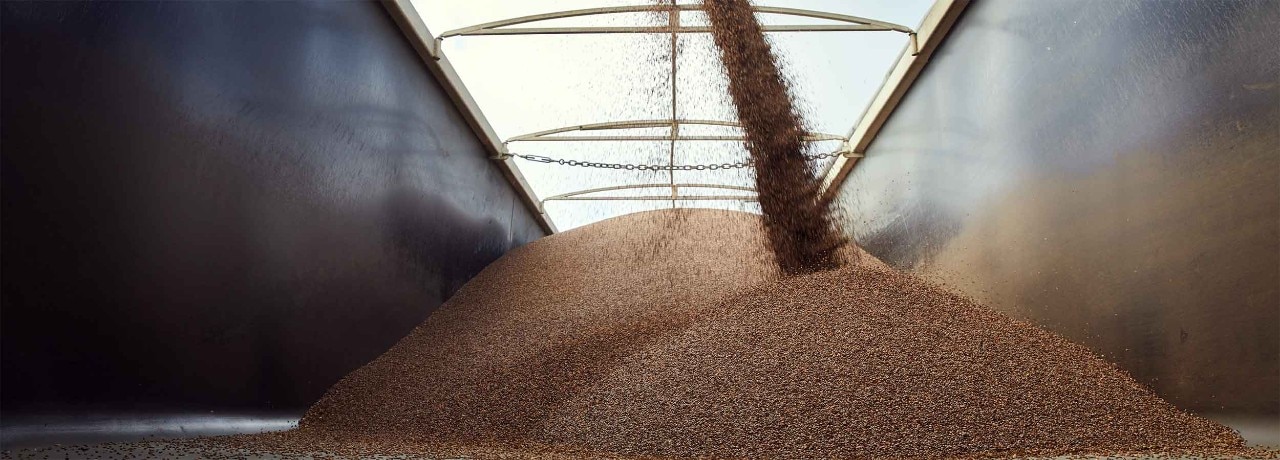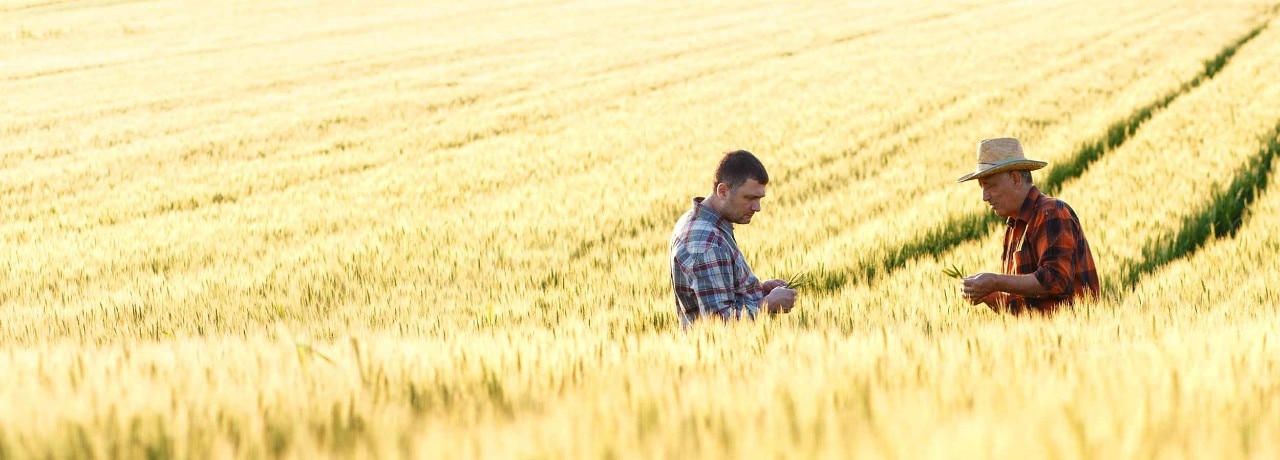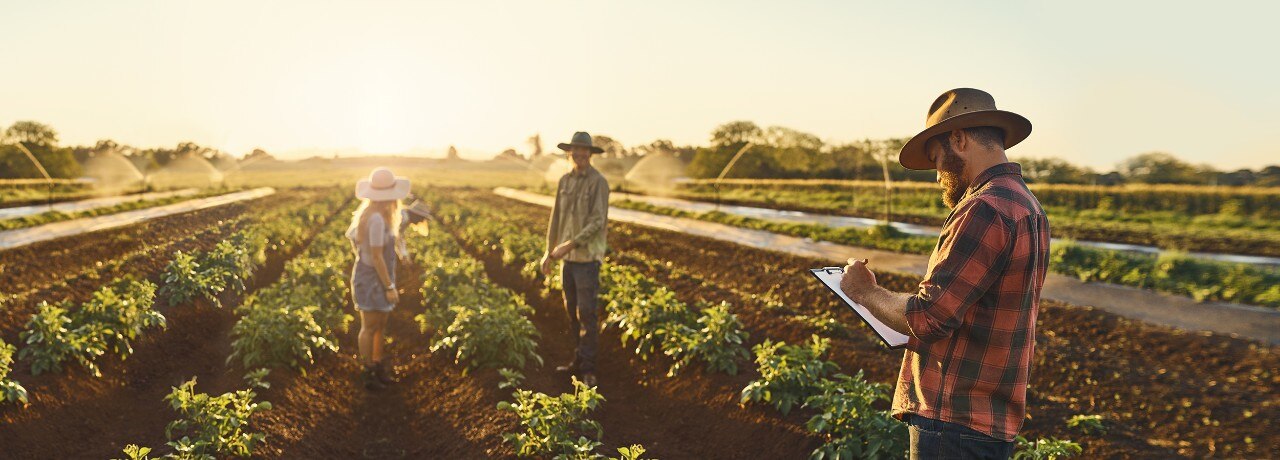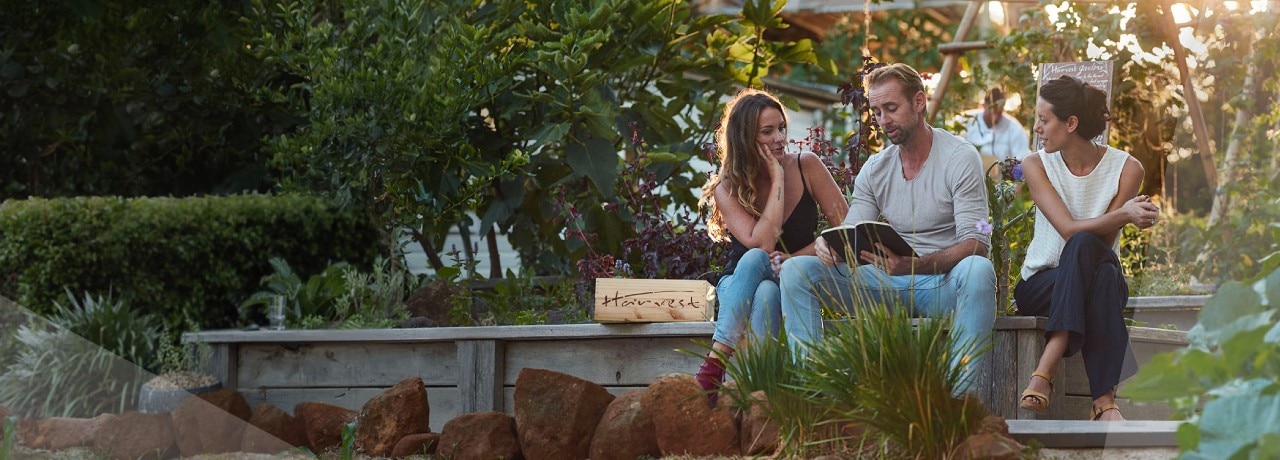Growth through investment | Wimpak - NAB
Investing to expand has helped a band of Victorian farmers turn their homegrown grain-packing cooperative into a booming export business.
Modest ambitions
When 10 farmers from the Wimmera region got together to establish a grain-packing operation in 1998, their ambition was modest: to add value to their crops and achieve greater control over pricing by cutting out the middleman.
Fast forward two decades and Wimpak, the Minyip-based cooperative they founded on a shoestring, has become a processing and packing powerhouse. They sell around 55,000 tons of pulse-type crops to customers in the United States, New Zealand, the Middle East and the Indian subcontinent each year.
A $3 million investment in equipment and automation doubled the plant’s capacity in 2014 and the construction of new storage sheds is expected to make 24/7 operation possible early next decade.
Wimpak’s original 10 shareholders has expanded to 23 and the business, which employs 12 full-time staff, services growers from the Northern Mallee to the South Australian border.
Starting small
There were no such grand plans at the outset. The venture kicked off with one silo, a secondhand cleaner and plenty of sweat equity from shareholders.
“They were doing their own working bees; they poured their own concrete and built the plant themselves,” Wimpak General Manager James French says.
“There were no outside people involved and there wasn’t a lot of cash. They did it very small at the beginning and that’s the way it ran for the first two or three years; a very basic operation with enough capacity to service themselves and their crops.”
As word of the venture spread, enquiries from other farmers trickled in and the enterprise expanded. Country caution kept overheads and debt levels down in the early years.
“The shareholders saw this as a way to keep control of their output and add value, so instead of putting a huge amount of risk on the table, it’s been ‘steady as she goes’,” French says.
Investing for efficiency and growth
Demand was steady enough to enable Wimpak to undertake a $3 million site overhaul in 2014, increasing production capacity from eight tons per hour to 20.
The acquisition of a new LMC cleaner necessitated a $1 million power upgrade. The result is a system that’s 20 per cent more energy-efficient than its predecessor.
Wimpak also invested in a larger weighbridge and site office, a drive-over hopper for unloading grain trailers into bins and a Browntree container loader that eliminates the need for manual handling at the packing stage.
A single touchscreen is used to control operations. It’s synched to iPads and mobile devices down the line and the result is a system that’s able to monitor production down to an individual bag level.
The purchase of a hammer mill enabled Wimpak to begin turning wastage, generated by the cleaning process, into profit. The waste is milled to create pollard, which is sold to stock mills for use in the manufacture of animal feed.
The project was expensive but worthwhile, according to French.
“We were hard hit in that we had two years of drought straight afterwards, but having that slack in the system allowed us to take the bugs out of the system when we weren’t flat out,” he says.
“Then 2017 was our biggest year ever and that really showed that the shareholders made the right choice. Where other people were having issues with cleaning enough product, we were able to keep things ticking.”
The plant currently runs between eight and 15 hours a day and storage capacity will need to be increased before production can be ramped up further. It’s the next item on the investment agenda: there are plans to build additional sheds on an adjoining seven-hectare property purchased in 2018.
Partnering with NAB
Wimpak accessed equipment finance to fund its 2014 expansion while a $10 million trade credit facility is used to manage cash flow.
“It allows us to buy grain and pay farmers on time, every time,” French says.
“Having it in place has meant our growth hasn’t been constrained in seasons when prices and volumes have been high.
“Wimpak has been with NAB for many years and we’re looking forward to working together during our next expansion phase.”
Pulling together
Cooperation, goodwill and a can-do attitude helped get Wimpak off the ground. All three are still present in abundance and are helping keep the enterprise competitive as it gears up for a third decade of growth.
“The shareholders have always run the board and kept the information flowing freely among themselves,” French says. “They put their hearts and souls into starting this place and they all take a keen interest in seeing it succeed into the future.”
Car and equipment finance for your business
Ready to start looking for equipment or vehicle finance for your business?
Other business moments
Consider all the options when buying new equipment
How to choose the best equipment financing for your business.
Tips for growing an international business
Cover your bases with proper planning, preparation – and funds.
Foodie heaven - turning an idea into reality
How Harvest transformed into a destination dining experience.
Related products and services
NAB QuickBiz unsecured business loan
Fast, unsecured business lending made easy. Get access to funds for your business without physical assets as security.
Business car and equipment finance
Find the right finance solution for your vehicle and equipment needs.
Trade and invoice finance
Trade and invoice finance solutions to help your trading business. We have trade and working capital specialists to help you trade locally and overseas.
Get in touch
Request a call back
Let us help with your business banking needs. Request a call back to chat with one of our business bankers.
Contact us
Explore our business banking contact information and get support with a wide range of products, services and topics.
Visit a NAB branch
Our business bankers are located all around Australia.
Terms and Conditions
Apologies but the Important Information section you are trying to view is not displaying properly at the moment. Please refresh the page or try again later.
The information contained in this article is intended to be of a general nature only. It has been prepared without taking into account any person’s objectives, financial situation or needs. Before acting on this information, NAB recommends that you consider whether it is appropriate for your circumstances. NAB recommends that you seek independent legal, financial and taxation advice before acting on any information in this article.




